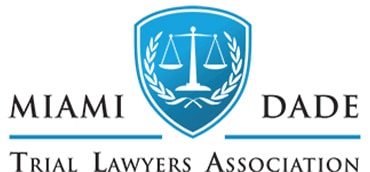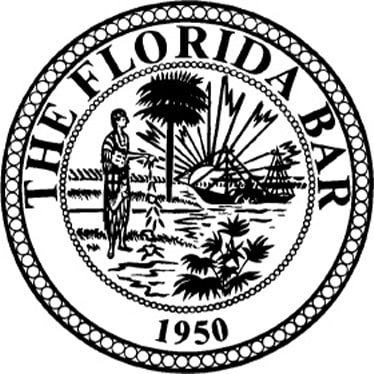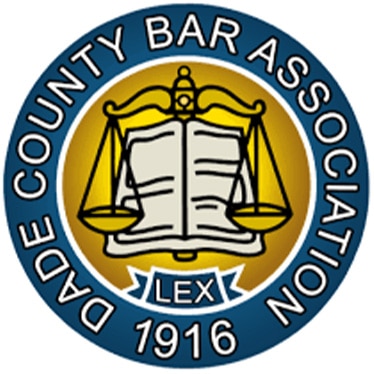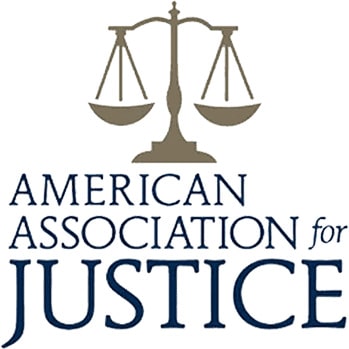When you stay at a hotel, who is responsible if your belongings go missing? This article explores hotel liability for guests on property, detailing your rights and the hotel’s duties. Learn what steps to take if your property is lost or stolen.
Key Takeaways
- Hotel liability extends beyond providing accommodation to ensuring the safety and security of guests and their belongings, with legal obligations to prevent harm and theft.
- Proving hotel negligence requires demonstrating that the hotel breached its duty of care, which led to property loss, often supported by evidence such as security footage or witness accounts.
- Preventative measures for guests include using in-room safes, keeping a detailed inventory of belongings, and securing travel insurance to mitigate the risks of theft or loss during their stay.
Hotel’s Responsibility for Guests on Property
When you enter the grand lobby of a hotel, you’re not just a customer; you’re one of the hotel guests entrusted to the care of the property owners. The hospitality industry, with its gleaming floors and polished service, carries an underlying responsibility towards you and your guest’s property. This duty of care, legally binding for the transient public lodging establishment, extends beyond mere accommodation; it encompasses ensuring your physical safety, mental well-being, and the sanctity of your belongings.
From a legal standpoint, hotel owners do more than just provide a room; they pledge to safeguard you from harm and shield your belongings from loss or damage.
Innkeeper’s Liability Explained
A glance into history reveals that innkeepers’ guests were granted an extraordinary liability, making proprietors nearly unconditionally responsible for the guests’ property. Today, a hotel’s negligence is not so easily presumed. Modern laws have refined innkeeper’s liability, often capping it at modest amounts unless the guest can demonstrate negligence on the part of the public lodging establishment. Take Florida, for instance, where the liability is capped at $1,000 for valuables unless an inventory is filed, mandating that hotels clearly communicate their property policies to you, the guest.
However, the innkeeper’s liability does cover scenarios where the hotel or its staff behaved irresponsibly, resulting in the loss or theft of your property.
Proving Hotel Negligence
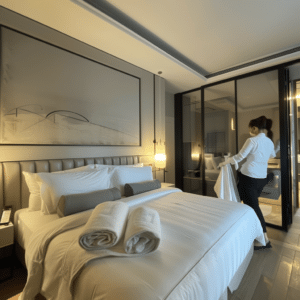 But what does it take to establish a hotel’s negligence? Imagine you return to your room to find your valuables missing. To hold the hotel accountable, you must show that they failed in their duty to provide a safe environment. This requires proving that the hotel’s actions or inactions directly caused the property loss. It’s a legal dance of proving that:
But what does it take to establish a hotel’s negligence? Imagine you return to your room to find your valuables missing. To hold the hotel accountable, you must show that they failed in their duty to provide a safe environment. This requires proving that the hotel’s actions or inactions directly caused the property loss. It’s a legal dance of proving that:
- you were a paying guest
- the hotel owed you a duty of care
- this duty was breached
- the breach led to the theft
Evidence such as employee negligence or a lack of security footage can support your claim.
At times, witness accounts or security footage may be pivotal in establishing the hotel’s negligence or her own negligence.
Common Scenarios of Hotel Liability
While a hotel stay should be worry-free, unforeseen circumstances can sometimes disrupt the peace. The hotel premises can become a stage for various liability scenarios, from theft by hotel staff to inadequate security measures.
Imagine the dismay of discovering that your treasured possessions have vanished, only to realize that the staff you trusted might be the culprit. Or perhaps a lack of security has left you vulnerable to outside threats. These are but a few of the predicaments where a hotel’s negligence becomes a palpable reality.
Theft by Hotel Staff
Theft by hotel staff feels like a disturbing betrayal, as those hired to protect your safety turn into the culprits. Hotels can be held vicariously liable for such acts, as they are responsible for their employee’s actions while on duty. If a staff member pilfers your guest property, the hotel owners may face repercussions, especially if they’ve neglected to properly vet or supervise their workforce.
It’s a breach of the trust you place in a transient public lodging establishment, one that can lead to legal consequences for the property owner.
Inadequate Security Measures
Picture strolling through poorly lit hotel hallways with a mounting sense of discomfort. Inadequate security measures can turn a hotel into a liability hotspot, where dangers lurk in the shadows. Florida’s premises liability duty mandates hotels to warn and mitigate such risks. Failing to provide sufficient lighting or security can lead to criminal acts, ranging from robbery to sexual assault and rape. Hotels are expected to have security measures like CCTV and functional locks in place.
Negligent security claims may arise from these very shortcomings, and if a hotel’s lackluster surveillance or lighting contributes to a criminal act, it may be held liable for the damages.
Acts of God and Other Exceptions
However, not all liabilities fall under human control. Consider the chaos wrought by natural disasters—hurricanes, floods, or other unforeseen events. In these instances, hotels might not bear responsibility for guest property loss if they had no control over the events. It’s a type of extraordinary liability, where the force of nature overrides human influence.
However, hotels are not absolved from all responsibility; they must still meet all other safety standards. It’s a delicate balance between foreseeability and the unpredictability of Mother Nature.
Contact us today for your free & confidential case review. Our team will help you get the compensation that you deserve.
Duties of Hotels Toward Guests’ Property
When you check into a hotel, you engage in an implicit agreement wherein the hotel takes on certain obligations toward your belongings. It’s not just about providing a roof over your head; it’s about safeguarding your possessions against the risk of theft or damage.
Florida’s statutory and common law duties compel hotels to create a reasonably safe environment and secure your belongings. The Sunshine State, in particular, expects hotels to exercise reasonable care for the protection of your property.
Reasonable Care Standards
In the hospitality industry, reasonable care isn’t merely a recommendation; it’s a norm. This encompasses proper security protocols, regular inspections, and vigilant staff training to prevent property theft. Hotels are expected to respond swiftly to maintenance issues that could pose a risk to your belongings. Measures like security cameras, lighting, and trained staff are not luxuries but necessities to ensure your valuables are protected.
A hotel’s failure to maintain these standards could result in liability under premises law if negligence results in loss or harm.
Secure Storage Options
When you step into your hotel room, you might discover a modest but vital feature—an in-room safe. These secure storage options are not just conveniences; they are provisions that hotels must offer to limit liability for lost or stolen items. The use of such safes can significantly reduce the hotel’s liability, acting as a shield against potential claims.
However, Florida hotels are not obligated to accept your valuables for safekeeping unless specified, keeping their liability limited to $1,000 unless negligence is proven.
Informing Guests About Policies
Awareness equips you with power, and in the context of guest property, being well-informed fuels this empowerment. Hotels have an obligation to post notices about property policies in prominent locations, ensuring that you, as a guest, are aware of the rules. Written policies provided at check-in or displayed in guest rooms serve as a reminder of the hotel’s limitations on liability and your responsibilities.
Informational brochures also play a part in emphasizing the importance of protecting your valuables, including tips on maintaining an inventory.
Legal Actions and Compensation
When the unexpected occurs, resulting in loss or theft under the hotel’s supervision, understanding your legal options is vital. To seek justice and potentially receive compensation, you must navigate the legal system, proving the hotel’s negligence and presenting clear evidence. This could include highlighting the hotel’s failure to maintain adequate security measures or defective locks.
A successful lawsuit hinges on gathering irrefutable proof of the hotel’s lapse in duty.
Filing a Complaint with the Hotel
If you find your belongings missing or forgotten, your initial course of action should be:
- Lodging a complaint with the hotel.
- Contact the hotel’s customer service immediately, providing details such as your stay dates and a description of the lost items.
- Documentation is crucial—ensure you record the names and contact information of any staff members involved in handling your incident.
Reporting any suspicious activity can also bolster your case, showing due diligence on your part.
Pursuing Legal Action
If attempts at internal resolution fail, the subsequent step may involve initiating legal proceedings. Engaging a lawyer with experience in hotel liability laws can guide you through the process, from assessing the strength of your case to representing you in court proceedings. Legal knowledge is invaluable in such situations, especially when seeking financial compensation for your losses.
An attorney can help collect the necessary evidence to support your claim against the hotel or its staff.
Special Considerations for Different Types of Lodging
All lodging experiences are not the same, and the legal considerations that accompany them also differ. Whether you’re staying at a picturesque bed and breakfast, a cozy vacation rental, or a membership campground, each type of lodging presents unique liability considerations. The character of the establishment—from a family-owned inn to an expansive hotel—can influence the standard of care you can expect, especially during a public lodging establishment fall.
Even within the realm of accommodation and meal services, distinctions are made; for instance, motels often fall under the same legal umbrella as hotels when it comes to hosting transients. These establishments provide meal services generally offered in the industry, catering to various guest preferences. In such an establishment, guests can expect a consistent level of quality and service.
Bed and Breakfast Inns
Envision a charming bed and breakfast inn, where the coziness of a family home merges with the professional service of a hospitality business. Such inns face a host of property exposures, from valuable guest property to equipment like HVAC systems. The risks are varied, including the possibility of workers’ compensation claims due to on-the-job injuries. Liability extends to food service establishments, where a single incident of food poisoning or over-serving alcohol can lead to legal challenges. Data safety is another concern, as inns often store sensitive information that could attract cybercriminals.
Vacation Rentals
Step into a vacation rental, and you’ll notice a change in the atmosphere. These rental units, often without 24/7 on-site management, present a different liability landscape for both the property owners and you, the guest. The absence of round-the-clock oversight can affect guest safety, potentially increasing liability for the owner.
It’s a more independent stay, where you’re often left to your own devices, emphasizing the need for personal vigilance regarding your belongings.
Membership Campgrounds
Membership campgrounds represent a different world entirely, providing a mix of nature and amenities to those who’ve secured the privilege through payment. With private campsites and facilities like pools and sports courts, they’re a far cry from standard hotels. Yet, the contractual relationship between the campground and its members brings complex liability issues to the forefront. Clauses limiting the campground’s liability for lost or stolen property are common, emphasizing the importance of member awareness and personal property security.
Preventive Measures for Guests
Being a hotel guest doesn’t render you helpless against the potential loss of property. There are various preventative measures at your disposal to safeguard your belongings and peace of mind. By being proactive, you can significantly reduce the risk of falling victim to theft or negligence during your stay.
Whether it’s employing hotel safes, maintaining an inventory of your valuables, or securing insurance coverage, each action you take is a step towards secure travel.
Using Hotel Safes
An in-room safe acts as a stronghold for your valuables, providing a private, code-protected sanctuary for your passports, credit cards, and jewelry. The convenience of securing your items without having to visit the front desk is not just a luxury but a safety measure in sleeping room accommodations.
While some may worry about the size limitations, as not all safes can accommodate larger items like laptops, the benefits of using these secured containers cannot be overstated.
Keeping an Inventory
Try picturing the aggravation of attempting to remember every item you packed for a trip when faced with a loss. Keeping an inventory is akin to drafting a map of your personal property, one that can guide you and the hotel staff should anything go missing. This meticulous list becomes a crucial tool if you need to file an insurance claim, as it provides a clear record of what was lost or stolen.
Furthermore, regularly updating this inventory ensures its effectiveness, as it reflects the current contents of your luggage—providing you with an accurate and up-to-date account of your valuables.
Insurance Coverage
In the realm of travel, the only certainty is uncertainty. Hence, travel insurance becomes a shield, offering coverage for personal property loss or theft during hotel stays. Don’t overlook the potential of homeowner’s or renter’s insurance policies; they might extend to your belongings even when you’re away from home.
Investing in such insurance coverage is a proactive step that not only provides financial compensation but also peace of mind, allowing you to enjoy your travels with one less worry on your mind.
Frequently Asked Questions
What is the innkeeper’s liability?
How can I prove hotel negligence if my property is stolen?
You can prove hotel negligence by demonstrating that the hotel breached its duty of care towards you and that this breach directly caused the loss of your property, using evidence such as security footage, witness testimony, or employee negligence.
Are hotels liable for theft by their staff?
Yes, hotels can be held liable for theft by their staff as they are responsible for the actions of their employees while on duty. Proper vetting and supervision of staff are essential to avoid legal consequences.
What should I do if my belongings are stolen while staying at a hotel?
You should immediately report the theft to hotel management, document all details, and consider filing a police report. If the hotel’s negligence contributed to the theft, you may also consider legal action.
Do different types of lodging have different liability considerations?
Last updated Wednesday, September 18th, 2024




